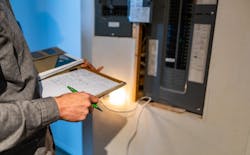Energy Retrofits Offer a Practical Way for the Remodeling Sector to Practice Sustainability
Housing accounts for 20% of the United States' total greenhouse gas emissions, and a recent Supreme Court decision to limit federal regulation of carbon pollution could spell even more trouble for the sustainability of an industry often averse to change. In order to stay one step ahead, remodelers can make a number of simple and practical energy-related improvements to existing homes.
Energy retrofits for existing homes are slow to catch on in the remodeling sector, but according to Harvard’s Joint Center for Housing Studies, homeowner spending for improvements and repairs is expected to grow up to 17% this year with total market spending on the owner and rental stock surpassing $500 billion.
Even though there has been some consolidation in the homebuilding industry and that has brought some standardization of technical skills and reaping of scale economies, most of the remodeling market’s pool of providers is still composed of smaller organizations working in different local markets with variable rates of growth.
Fortunately, constraints in the remodeling industry also present strategic opportunities. Home improvements vary by category (i.e., discretionary versus replacement) and project type (e.g., roof replacement, kitchen remodel, etc.) and energy remodels can be mapped against a broad range of projects. For example, roofing replacements could support photovoltaic installation and garage or carport additions might allow for electric vehicle charging.
